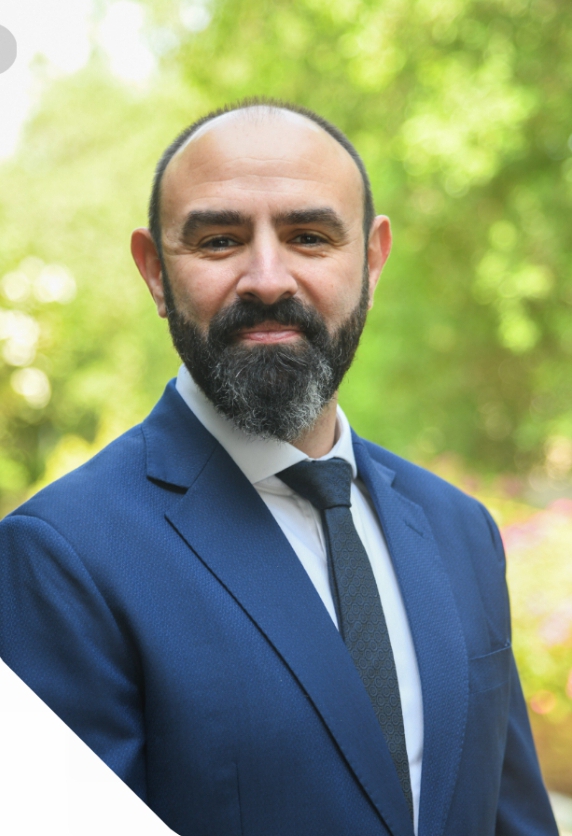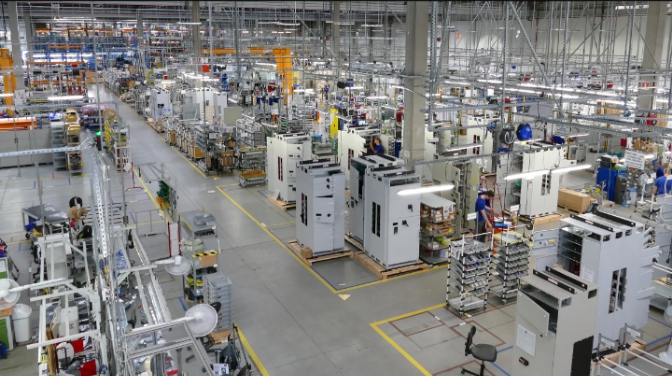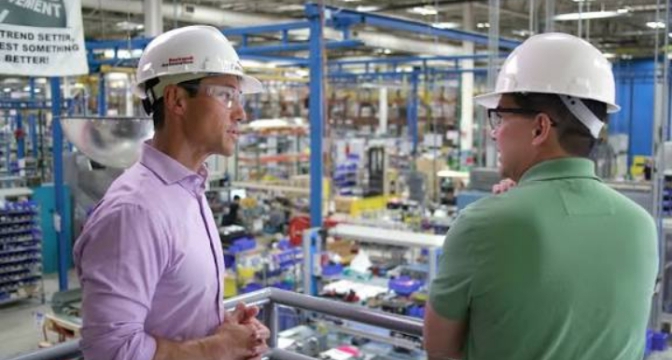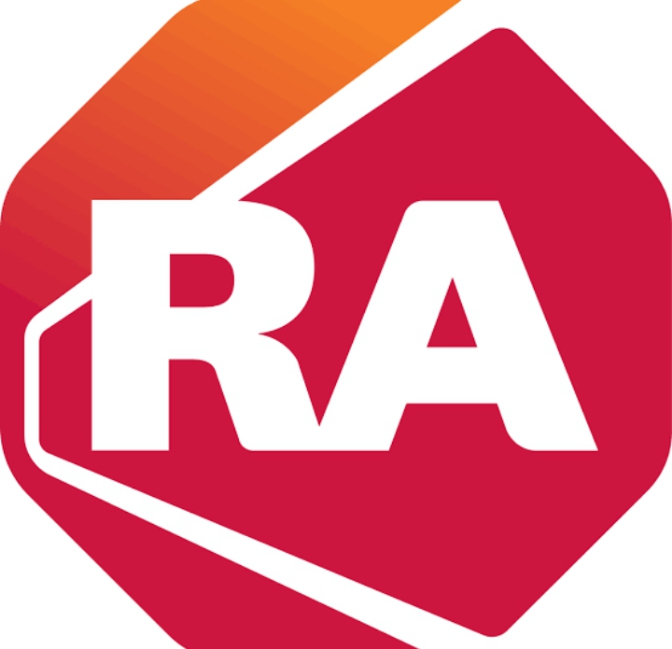Sebastien Grau is the Global Industry Vice President for Process Industries at Rockwell Automation, leading global sales and strategic direction across the Energy, Chemicals & Plastics, and Metals & Mining sectors. His team drives partnerships that support customers in energy transition, sustainability, and decarbonization.
Since joining Rockwell in 2019 as Regional Vice President for the Middle East, Turkey, and Africa, Sebastien has brought broad leadership experience from Dell France, Areva T&D, and Schneider Electric, where he served as Commercial VP for the MEA Energy Business Unit. He also founded Galea Technologies in 2004, a company that developed public mobile battery-charging kiosks.
He holds a master’s degree in International Sales from IAE Montpellier II. In this interview with Oke Peter, Sebastien shares insights on Rockwell Automation’s developmental strides and strategic progress in the process industries. Excepts
In your current role, how are you driving alignment between Rockwell Automation and its clients amid rapid changes in the energy, chemicals, and mining sectors?
Our customers are navigating one of the most complex operating environments we’ve seen in years, where market shifts, policy changes, and evolving technologies are reshaping priorities almost overnight. For us, alignment starts with deep collaboration and understanding each customer’s strategic direction, not just their immediate challenges.
Rockwell’s approach is to be a trusted partner rather than a vendor, integrating our teams into our customers’ workflows, co-developing solutions, and helping them adapt faster to change. Whether that means improving uptime and process efficiency, strengthening digital infrastructure, or supporting sustainability goals, we focus on outcomes that directly move their business forward.
In practical terms, that means working closely with customers to design scalable architectures, invest in automation that’s flexible enough for future upgrades, and apply analytics that turn real-time data into smarter decisions. This partnership model helps our clients remain resilient and competitive, regardless of how the market evolves.
With ADIPEC increasingly focused on sustainability, how is Rockwell Automation positioning itself as a leader in enabling digital transformation and net-zero strategies for process industries?
Everything we do at Rockwell is about making industrial processes more productive and efficient, which naturally makes them more sustainable. Greater efficiency means less waste, water, and energy consumption, directly reducing carbon footprints.
However, sustainability means different things in different regions. In Europe, it’s often seen as regulatory compliance, while in North America, it’s more about building viable business models and turning emissions reduction into an economic opportunity. For example, major investments in direct air capture projects in Texas are being financed by big tech companies purchasing carbon credits to offset their data center emissions.
We support both the innovators developing new technologies, such as electrolyzer manufacturers, carbon capture, utilization, and storage technologies (CCUS), and hydrogen startups, and our established industrial clients who want to decarbonize their operations. In both cases, our focus is to connect technology providers with process operators, making sustainability both practical and profitable.
You’ve led strategic initiatives across multiple regions, including the Middle East, Africa, and now globally. How have these diverse experiences shaped your approach to leading process industries at a global scale?
Leading Rockwell’s business across regions such as the Middle East, Turkey, and Africa, and now globally, has given me a deep understanding of how markets mature and transform at different paces. In developing regions, green energy is often viewed as a privilege for wealthier countries, while emerging economies are focused on access to energy and economic growth. Restricting energy use could limit development, so priorities must balance sustainability with progress.

In contrast, markets like Australia and parts of Europe are far more advanced in digitalization and autonomy. I’ve seen firsthand how the world’s biggest mining company’s remote operations centers manage multiple mines thousands of kilometers away, and how digital twins are being used to optimize processes before physical implementation.
My experience in these diverse environments has taught me that no two markets are the same. A mine in emerging markets faces completely different challenges from one in more developed markets. Both are focusing on a high level of safety, but they are evolving with different automation maturity. Understanding these differences enables us to tailor our approach – whether that means focusing on automation and safety in developing markets, or advanced data-driven solutions and digital twins in mature markets.
Ultimately, this global exposure allows me to bring a more nuanced perspective to Rockwell, helping us adapt technologies to different levels of maturity and drive consistent improvements in efficiency, safety, and performance worldwide.
How do events like ADIPEC help shape strategic relationships in the Middle East energy sector, and what are your goals for Rockwell’s presence at this year’s exhibition?
ADIPEC remains the world’s largest oil and gas event, and it’s essential for Rockwell to have a strong presence there. It’s where we showcase our latest technologies, demonstrate real-world success stories, and engage with industry leaders on the challenges and opportunities ahead.
This year, we’re emphasizing technologies such as Software-Defined Architecture (SDA), which virtualizes hardware controllers, and Open Process Automation (OPA), a standard enabling true interoperability between vendors. These innovations could fundamentally disrupt traditional distributed control system (DCS) business models, giving end users more flexibility and choice.
ADIPEC also allows us to listen – to understand what keeps our customers awake at night, particularly as AI becomes central to operational efficiency. It’s an unparalleled platform for meaningful discussion and collaboration in the Middle East’s evolving energy landscape.
What key themes or innovations will Rockwell Automation be showcasing at ADIPEC 2025, especially in line with energy transition and decarbonization?
At ADIPEC 2025, Rockwell Automation will showcase a powerful suite of data-driven, secure, and sustainable solutions designed to help energy producers deliver measurable outcomes across efficiency, safety, and decarbonization.
Building on its core mission of enabling digital transformation and sustainability across the energy value chain, Rockwell’s presence this year is organized around three outcome pillars:
• Operational Excellence: Demonstrating unified control of process and power through the PlantPAx distributed control system (DCS), which integrates process automation with electrical control and real-time diagnostics. This system helps producers reduce downtime, optimize energy use, and improve reliability through advanced analytics, KPI-driven dashboards, and predictive maintenance.
• Cybersecure Operations: Highlighting Zero-Trust-aligned architectures, asset visibility, and OT-specific threat detection frameworks. With cybersecurity now central to digital transformation, Rockwell will show how companies can secure legacy infrastructure, enable remote operations safely, and meet emerging global standards such as NIS2, all without disrupting production.
• Sustainability at Scale: Using energy management tools, predictive analytics, and automation technologies to reduce flaring, optimize electrical efficiency, and manage emissions.
Rockwell’s automation solutions are also supporting energy-transition applications like carbon capture, utilization, and storage (CCUS) and green hydrogen, providing the digital backbone to scale these technologies efficiently.
Beyond these pillars, ADIPEC will also spotlight Rockwell’s broader innovation themes:

• Integrated Process and Power Solutions: Through Rockwell Automation and our joint venture Sensia, we will demonstrate how combining process control, power management, and intelligent measurement improves asset reliability, safety, and energy performance. This integration allows operators to monitor and manage both process and electrical systems seamlessly, a key enabler for smarter, more efficient energy operations.
• Digital Twin and Simulation Capabilities: Using emulation and virtual commissioning tools, we are helping producers shorten project timelines, cut costs, and de-risk investments, accelerating time-to-first-oil or gas.
• Automation for the Energy Transition: Sessions and live demos will show how scalable, modular automation supports CCUS, hydrogen production, renewables, and electrification, enabling OEMs and operators to innovate rapidly while maintaining compliance and reliability.
• Empowering the Future Workforce: Through intuitive HMIs, augmented reality (AR), and AI-driven analytics, Rockwell is enabling a more connected and capable workforce. These digital tools help operators and engineers make faster, smarter decisions while fostering safety, collaboration, and continuous improvement.
• Robotics and AI Integration: In partnership with Taurob Robotics, Rockwell is also showcasing robotics applications built for hazardous environments – a significant leap toward autonomous inspection and maintenance in oil and gas facilities.
Together, these technologies underscore Rockwell Automation’s commitment to helping energy producers and OEMs navigate complexity, improve operational performance, and accelerate the global energy transition through scalable, intelligent automation.
You founded a tech company early in your career. How has that entrepreneurial experience influenced your leadership style in large multinational corporations like Rockwell and Schneider Electric?
Founding a tech company early in my career gave me a mindset defined by fearlessness, resilience, and the freedom to challenge the status quo.
Entrepreneurship teaches you to make decisions quickly, take responsibility for outcomes, and find creative solutions with limited resources. It also instils a deep sense of accountability – there’s no safety net, so you learn to adapt and rebound fast.
That experience built strong self-awareness and a passion for agility and innovation. In a startup, you can’t afford layers of approval or hesitation; you move quickly and learn constantly. I’ve carried that same approach into my corporate roles – empowering teams to experiment, question assumptions, and take ownership of results.
In large organizations, this means encouraging open conversation and courageous decision-making. I believe in doing the right thing, not the easy thing. I also try to remove barriers so my teams can focus on impact rather than process.
Ultimately, that entrepreneurial foundation has shaped my leadership style around agility, accountability, and trust. It helps me build teams that think like owners – proactive, adaptable, and always focused on creating meaningful value for our customers and for Rockwell Automation.
Sustainability and digital transformation are central to Rockwell’s mission. How do you balance immediate customer needs with long-term goals like decarbonization in strategic planning?
For Rockwell, the key is integrating sustainability into the heart of business performance, rather than treating it as a separate objective. Many of our customers face the dual challenge of maintaining profitability today while investing in technologies that will define their future license to operate. Our job is to bridge that gap.
We focus on solutions that deliver immediate operational efficiency – reduced energy use, optimized processes, predictive maintenance – while also building a digital foundation for long-term decarbonization. By combining automation, analytics, and scalable architectures, we help companies move from incremental improvements to measurable emissions reduction.
This dual approach supports both sides of the industry:
• Emerging energy innovators such as hydrogen and carbon capture, utilization, and storage technologies (CCUS) developers, who need cost-effective ways to scale up.
• Established producers and processors looking to modernize legacy infrastructure and meet evolving ESG expectations.
Every investment we make is designed to improve performance now while positioning our customers for the energy transition ahead. It’s about creating progress that’s both immediate and sustainable – efficiency that serves the present and innovation that secures the future.










